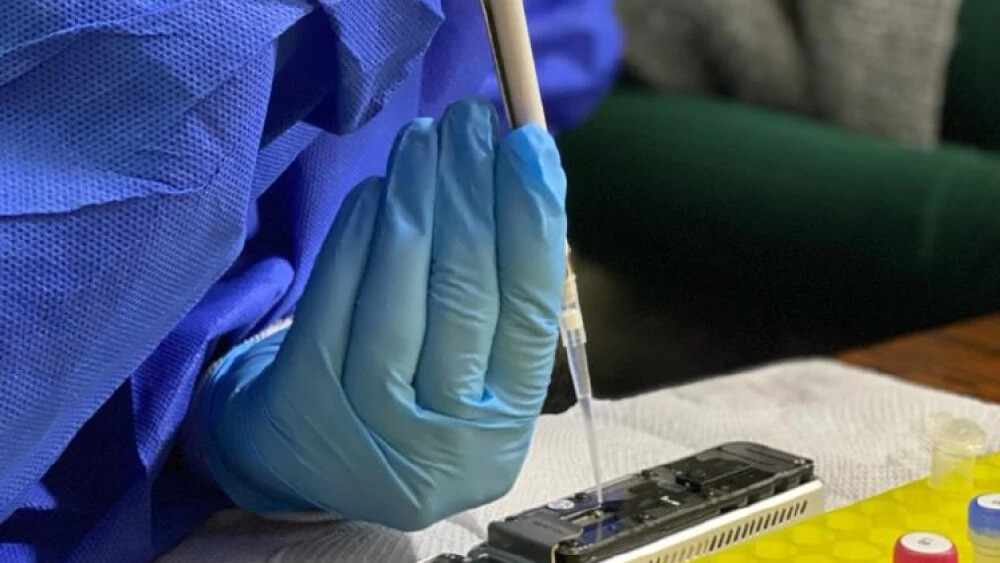
Tuberculosis (TB), an infectious disease caused by Mycobacterium tuberculosis (Mtb), remains a serious public health concern worldwide. In this context, Paraguayan researchers have successfully identified two blood biomarkers that can quickly and accurately monitor the effectiveness of TB treatment, drawing significant attention from the academic community. This groundbreaking discovery is expected to enhance the efficiency of patient treatment and make a crucial contribution to global efforts to eradicate TB.
Groundbreaking Discovery: C1q and IL-13 Biomarkers
A research team from the Institute of Health Sciences Research (IICS-UNA), under the National University of Asunción (UNA) in Paraguay, in collaboration with international partners, has identified C1q and HBHA-specific IL-13 as biomarkers indicating improvement in TB treatment. Dr. Graciela Russomando, who led the research, explained, "Our findings have been published in an influential journal, proving that C1q and HBHA-specific IL-13 clearly demonstrate improvement in tuberculosis treatment."
This discovery was made possible through international collaboration with scientists from France, Italy, and Madagascar, and its significance lies in its potential to lead to the development of less invasive and more accessible diagnostic tests in the future. A biomarker is a measurable biological substance, molecule, or characteristic within the body that serves as an indicator of normal biological processes, pathological states, or responses to treatment.
Background and Process of the Research
This research began as part of the GABRIEL network, an international network connecting biomedical research centers worldwide since 2010. Dr. Russomando stated, "We began researching biomarkers for TB treatment monitoring in 2018, and the possibility of expanding the research with other biomarkers not present in the original project, which started in France, was raised in Paraguay." Consequently, IICS-UNA, with support from the Paraguayan National Council of Science and Technology (Conacyt), took the lead in this new phase of the research.
The research team analyzed blood samples from Paraguayan patients with support from the Fondation Mérieux in France. The study utilized blood samples from 32 pulmonary TB patients, collected and analyzed at three stages: before treatment, two months after treatment, and six months after treatment completion.
Notably, this study marked the first time Luminex technology was introduced, allowing for the evaluation of 17 cytokines and complement system molecules. Dr. Russomando emphasized, "This equipment played a key role in detecting changes in C1q and IL-13 in patients. This is an important step for Paraguay in solidifying its position in cutting-edge research in infectious diseases." Luminex technology is a multiplex analysis platform that allows simultaneous measurement of multiple biomarkers in a single test, enabling efficient and precise analysis.
Overcoming Limitations of Current Diagnostics
Current TB diagnosis primarily relies on sputum examination. However, sputum tests have several limitations. Dr. Russomando pointed out, "It is difficult to obtain sputum from certain groups, such as young children, patients with extrapulmonary TB, or advanced HIV patients." Blood, on the other hand, is easy to collect and has the advantage of detecting systemic signs of the disease.
Furthermore, while traditional tests may struggle to diagnose cases with low bacterial loads, immune responses measured in blood can still be present in such instances, offering higher sensitivity. This can complement the blind spots of existing diagnostic methods and contribute to increasing treatment success rates through early diagnosis.
High Potential and Future Challenges
This research demonstrates the potential for TB treatment monitoring and proposes a new approach to strengthening healthcare systems. Dr. Russomando commented, "If blood-based ELISA (Enzyme-Linked Immunosorbent Assay) or rapid immunoassay methods are developed, they could be used at the primary care level without complex infrastructure." This could significantly improve healthcare accessibility and enhance the efficiency of TB management, especially in regions with limited medical infrastructure.
However, several challenges remain before this tool can be used clinically. Dr. Russomando explained, "Validation is needed in large cohorts and diverse epidemiological contexts. As of yet, there is no universally validated blood test that can replace existing diagnostics." She added that initial implementation costs and logistical issues could also be potential barriers.
Importance of International Collaboration
This study serves as a successful example of international collaboration. The Paraguayan research team consisted of Graciela Russomando, Diana Sanabria, Chyntia Carolina Díaz Acosta, Leticia Rojas, Laura Franco, and Rossana Arenas. Experts from the Catholic University of the Sacred Heart in Rome, the Pasteur Institute of Madagascar, the National Institute for Infectious Diseases "L. Spallanzani" in Italy, and the Fondation Mérieux in France also participated.
Such international cooperation is essential for combining the strengths and resources of various countries to solve complex scientific challenges and seek solutions to global health problems. The achievement of the Paraguayan research team not only showcases the scientific capabilities of the South American region but also reiterates the crucial role of cross-border research collaboration in promoting human health.
The discovery by Paraguayan researchers presents a new paradigm in TB treatment monitoring and lays an important foundation for the development of future diagnostic and treatment strategies. Although further research and validation are needed for commercialization, blood-based biomarkers have the potential to significantly improve TB diagnosis and treatment accessibility, ultimately enhancing the quality of life for countless people suffering from TB worldwide. This is a powerful example of how scientific discoveries can be applied in real-world healthcare settings and underscores the importance of continuous research and international cooperation.
[Copyright (c) Global Economic Times. All Rights Reserved.]






























